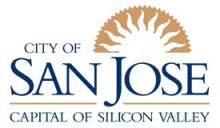San Jose Launches Super Fast Wi-fi
San Jose launched its new, publicly owned, downtown free Wi-Fi on March 14th. This is the community's third attempt at bringing a successful free service to downtown and city officials have made much ado about the new "Wickedly Fast Wi-Fi Network." The city teamed up with SmartWAVE Technologies and Ruckus Wireless to design and install the $94,000 network. Ongoing costs are estimated at $22,000 per year.
From the press release, reprinted in PR Newswire:
"Utilizing our Smart Wi-Fi technology, this Wickedly Fast Wi-Fi Network offers the fastest public Wi-Fi service in the country, and we’re proud to be a part of enabling that,” said Selina Lo, president and CEO of Ruckus Wireless. “On a smartphone, a user will be able to experience speeds of anywhere from two to three Megabits per second. This is easily three to four times faster than any other public network service,” Lo concludes. “There’s a huge, growing demand around the country, and the world, for more reliable public and managed Wi-Fi services to satisfy an exploding population of users now armed with multiple smart mobile devices, and where better to help satisfy that demand than starting with the Capital of Silicon Valley.”
The network will also speed up parking transactions in the City's downtown parking system and support downtown city government facilities.
In a KTVU report, Vijay Sammetta, Chief INformation Officer for San Jose described the new Wi-fi:
"Typically we see municipal a thousand or two-thousand miles per hour in layman's terms," said Vijay Sammeta, San Jose's Chief Information Officer. "We're upping that ante up to 10,000 miles per hour."
Update: The Wall Street Jounal has also just covered the recent proliferation of community owned Wi-Fi networks.


